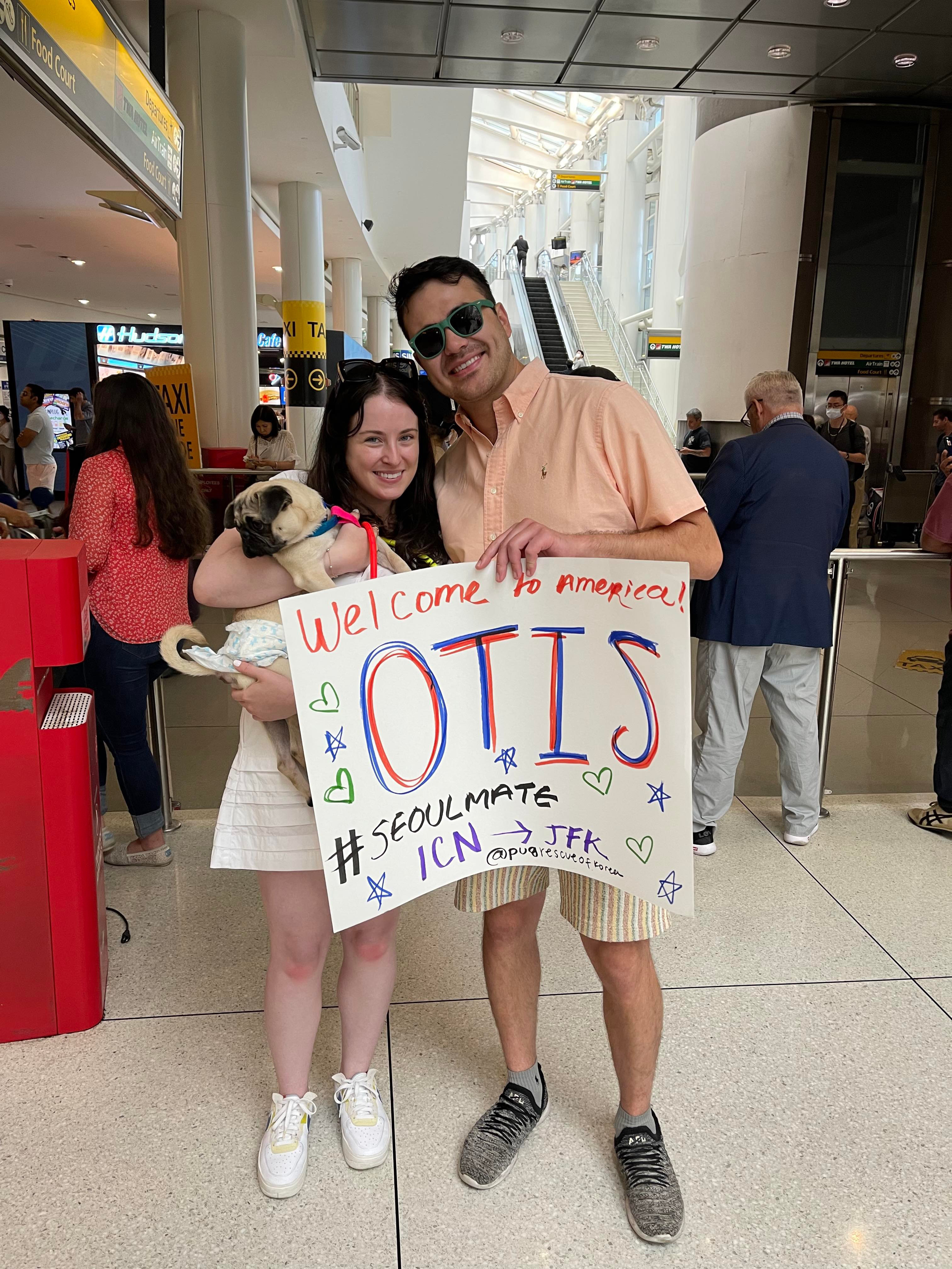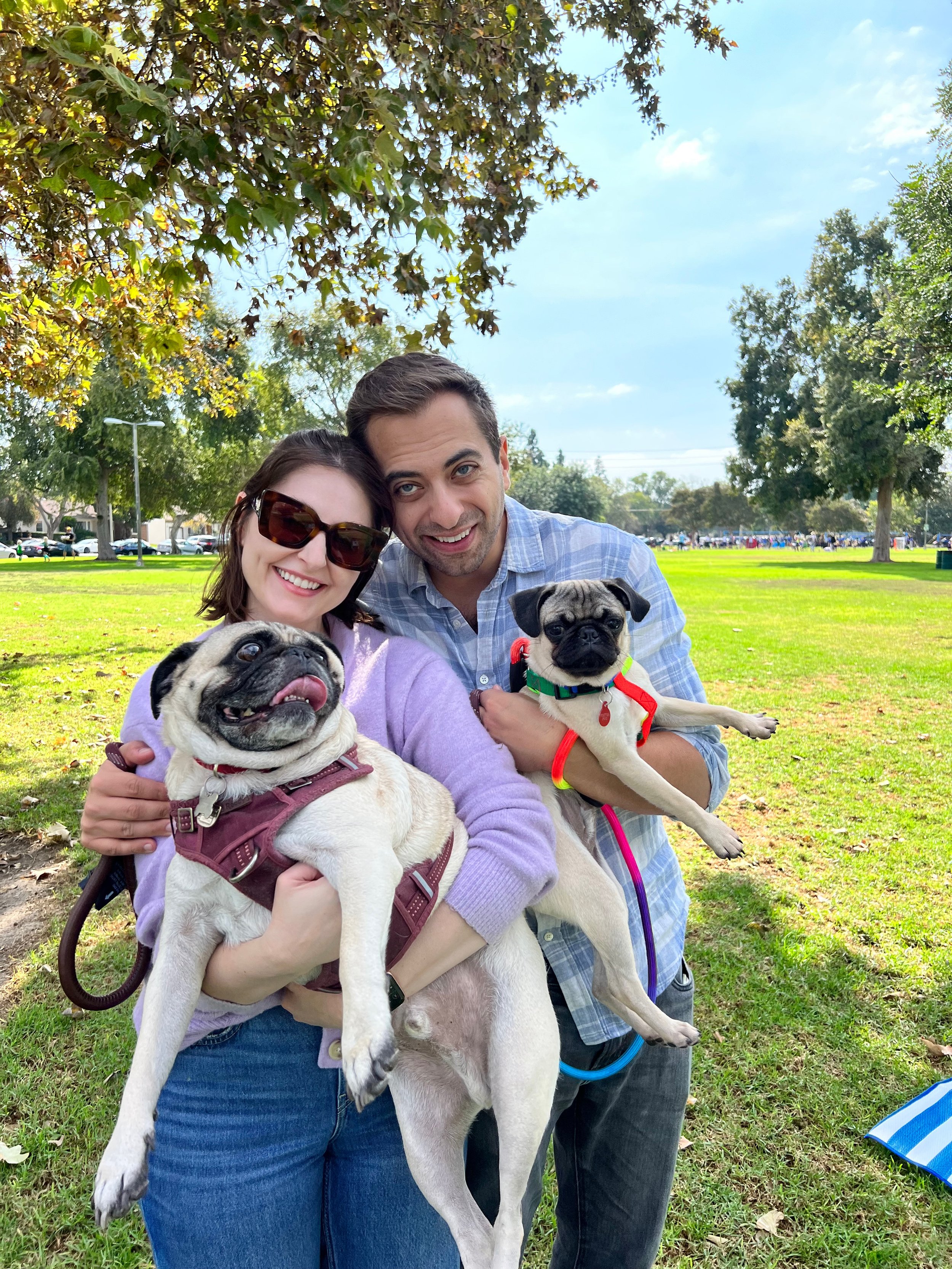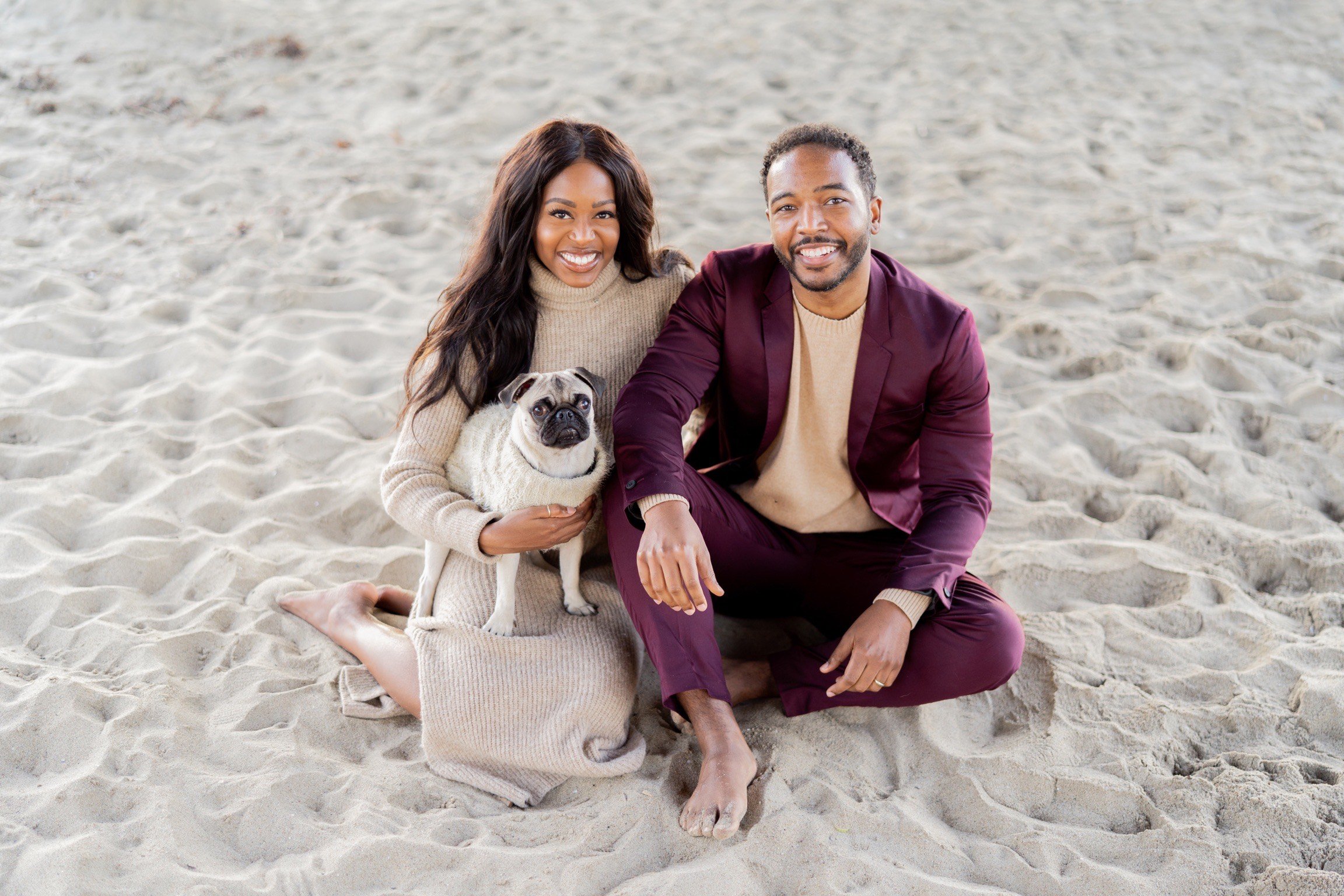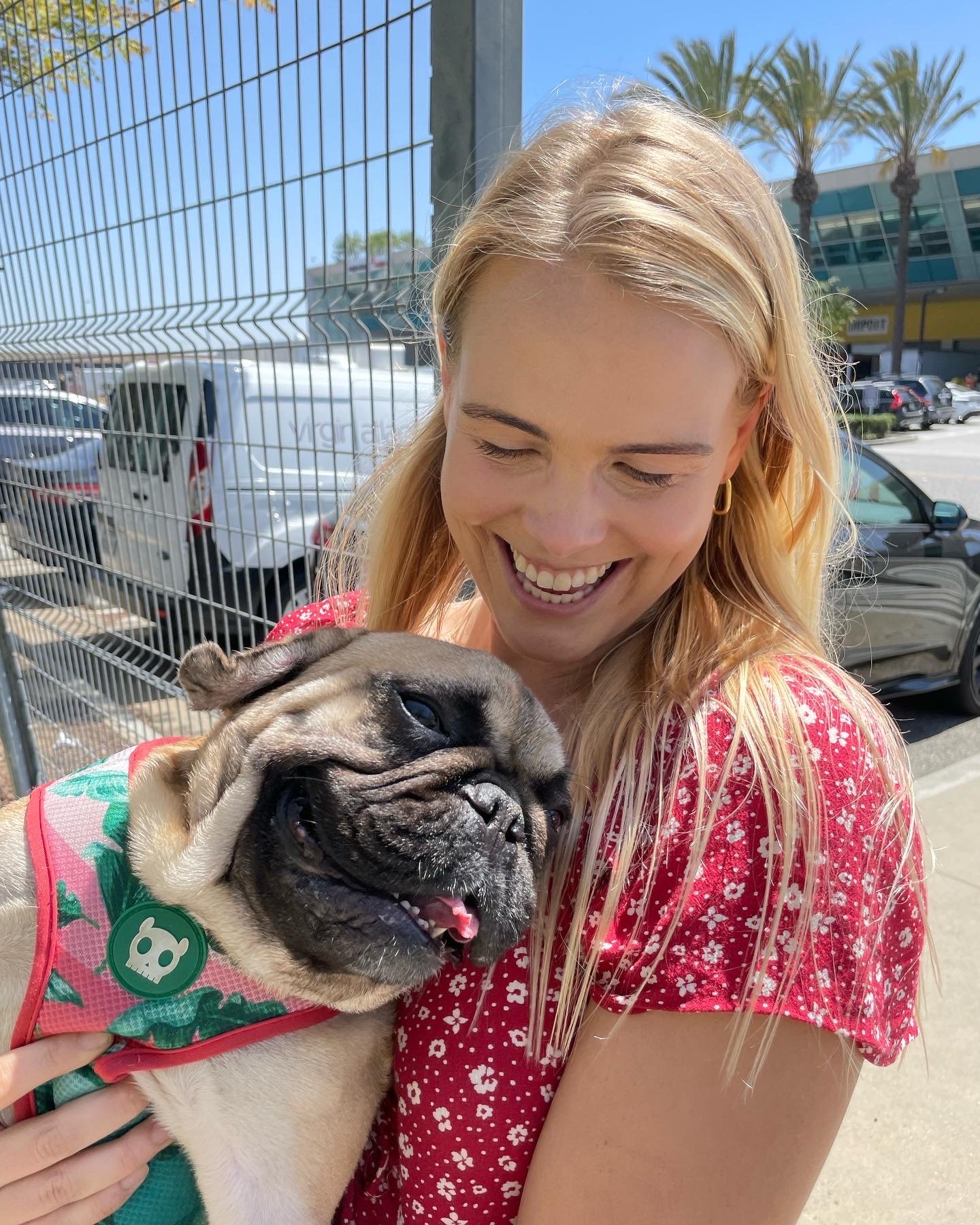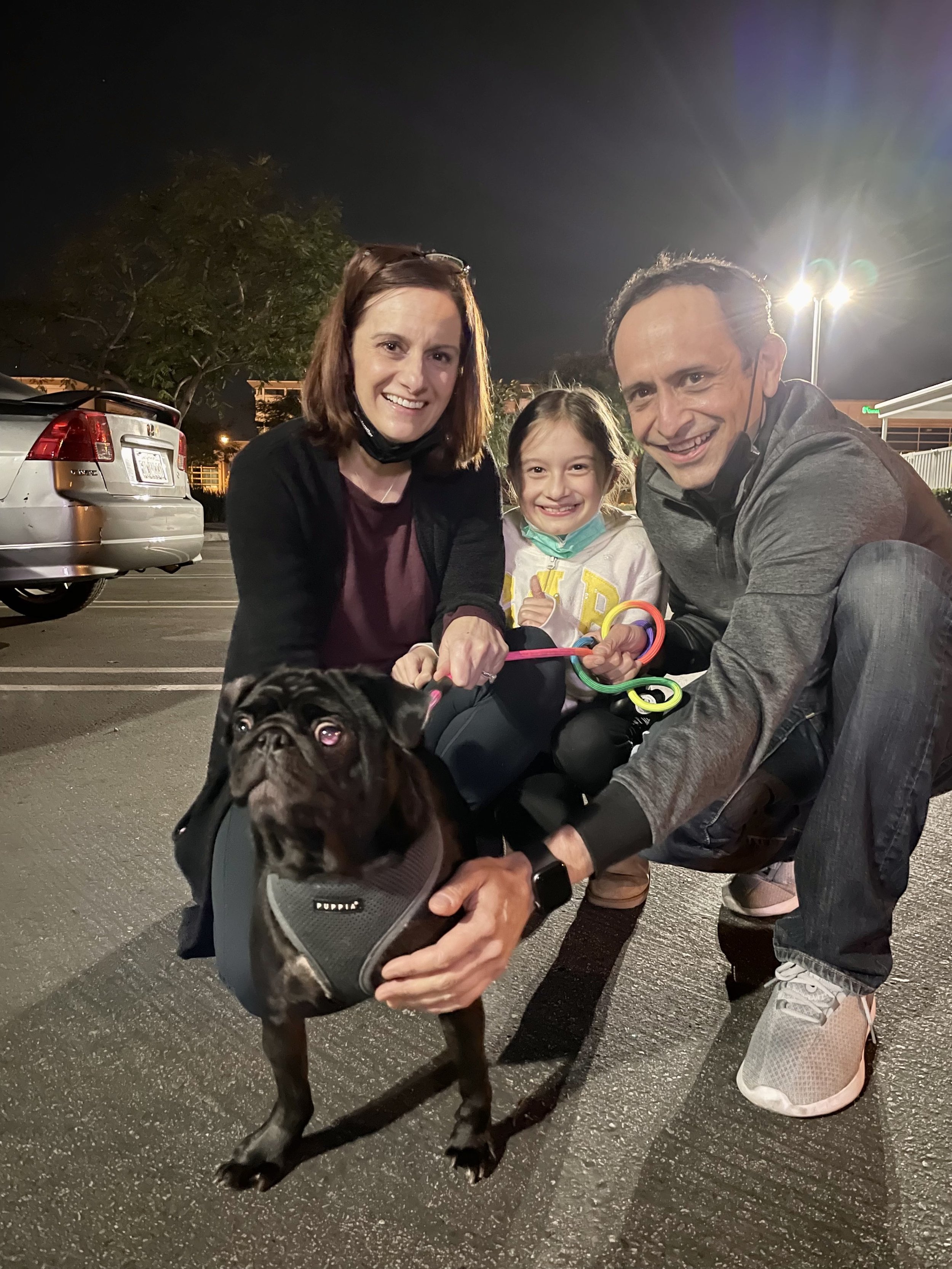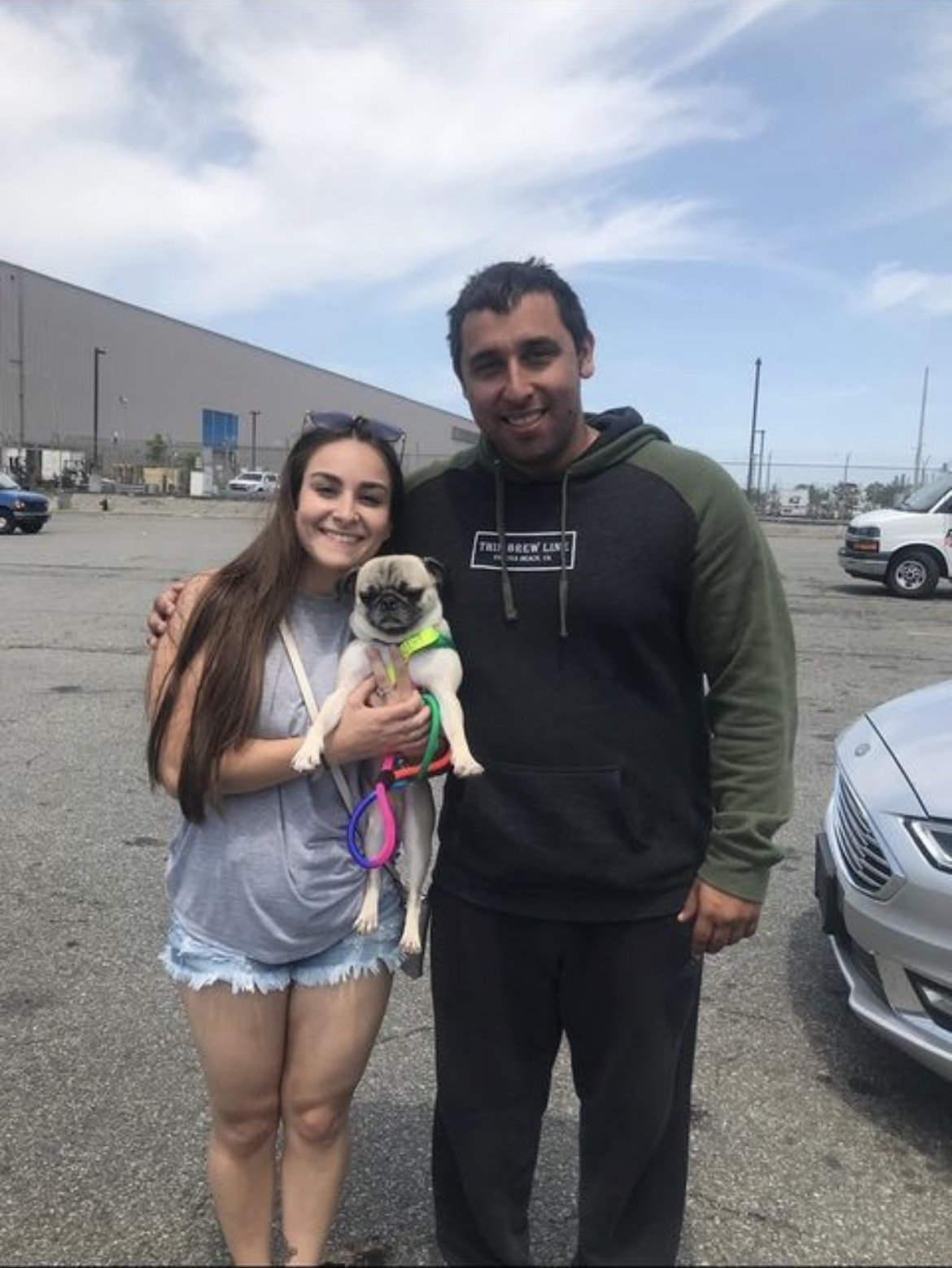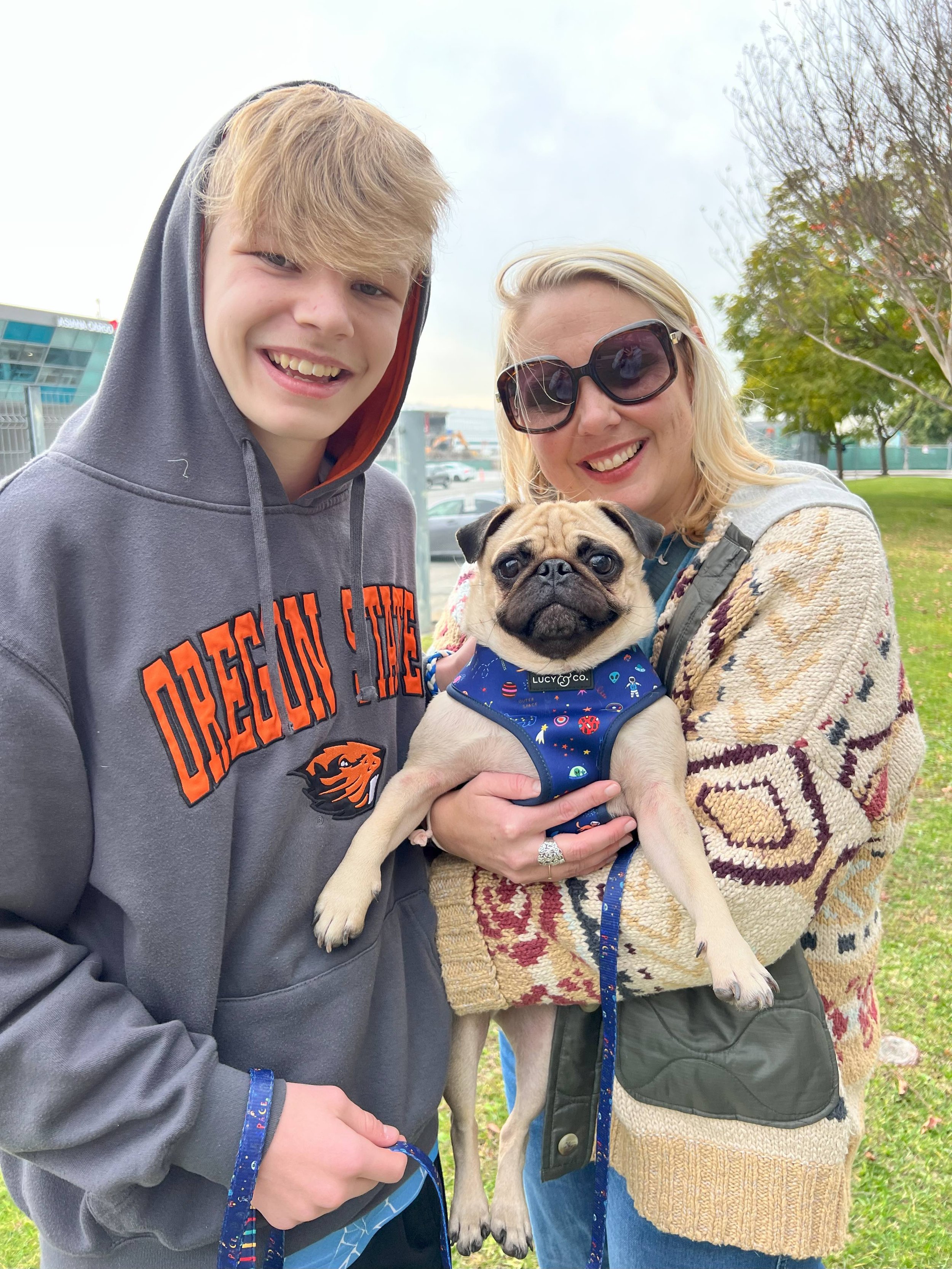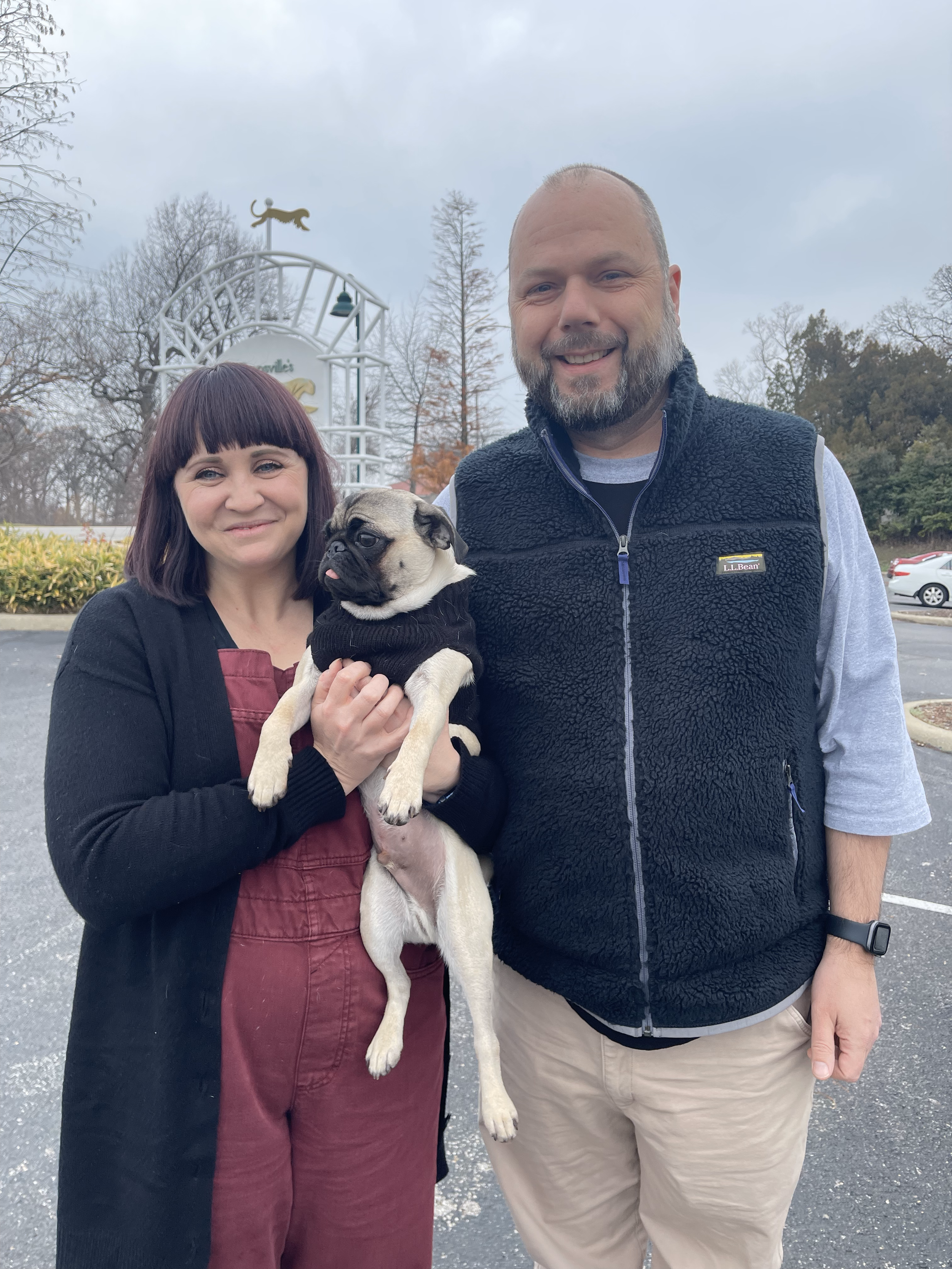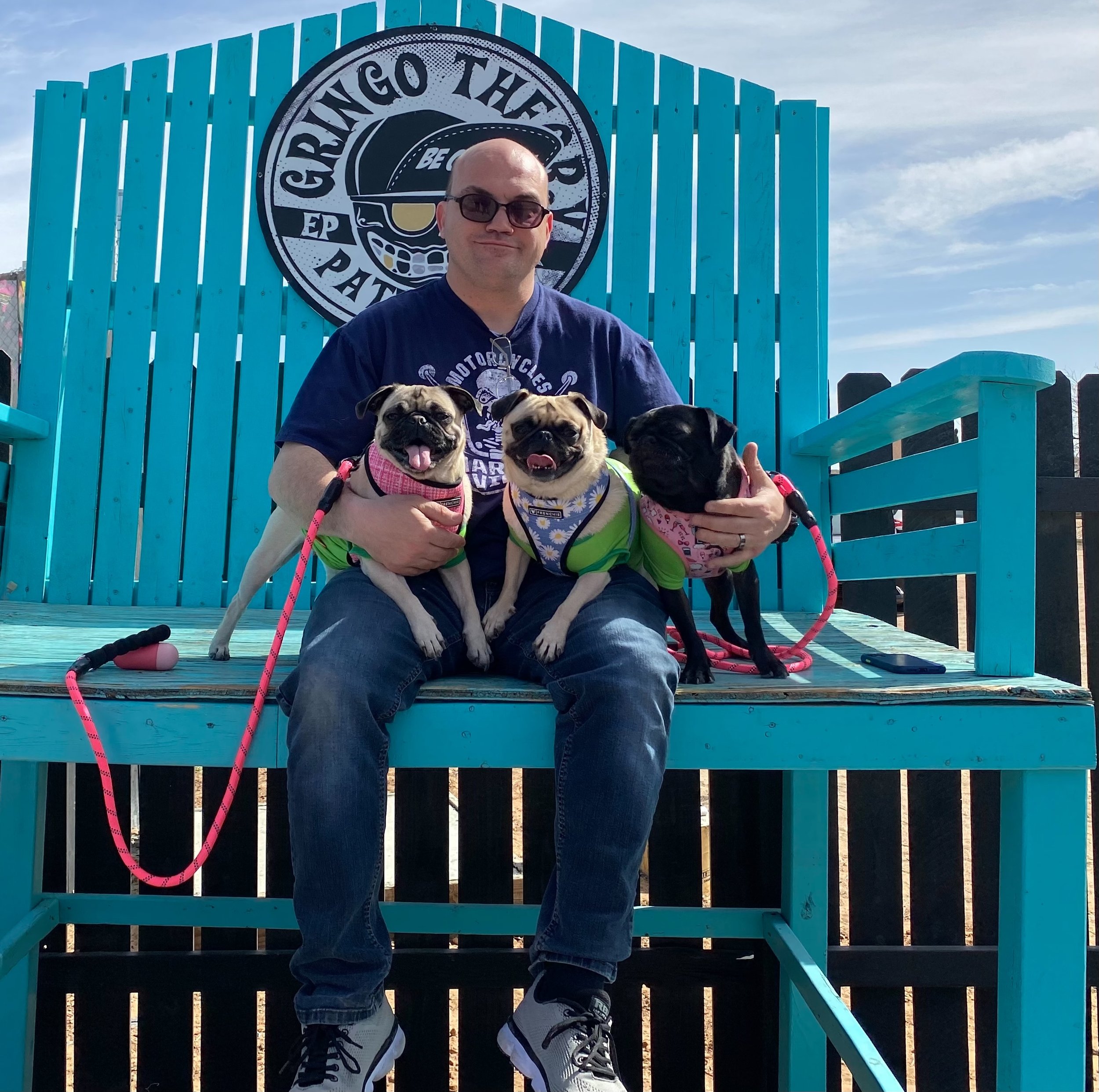
FREQUENTLY ASKED QUESTIONS
-
We follow the USDA animal import permit process, which requires dogs to receive veterinarian approval and a vaccination record before arriving in the U.S. On occasion, medication may be sent for eye issues, etc. If your pets are current on their vaccinations, maintain healthy diets and lifestyles, and are not immune compromised, then the health risk should be minimal. We strongly encourage you to visit a veterinarian once your newly adopted pug has arrived in the United States (or within South Korea).
Please remember you are adopting a pug that was relinquished or rescued, and we do our best to bring the dog to good health before they are adopted. You are adopting the pug in as-is condition.
-
At 5,978 miles, the flight time is approximately 11 hours from Seoul (ICN) to Los Angeles (LAX).
If you are picking up your pug directly from the cargo office by LAX, it will take your dog 2-3 hours after landing to clear customs.
-
All our pugs are spayed/neutered, fully vaccinated for DHLPP, rabies, canine coronavirus, Bordetella, and canine cough, and microchipped.
If you are adopting a pug in the U.S., they will arrive with a kennel carrier, a leash, and a harness. You will also receive a vet certificate showing their vaccination record, spay/neuter, and microchip number.
If you are adopting a pug within South Korea, and no flight is needed, your pug will not receive a kennel. Any records provided to the rescuer will be given to the adopter (if available).
-
The shipping fee covers a fraction of the cargo we pay to transport the pug from Korea to the US.
Since the start of the pandemic, cargo costs have increased nearly 200%. We now pay $1000+ for ONE dog to fly from Korea to the US.
Your contribution helps cover this cost. Donations and fundraising subsidize the remaining.
Even if the pug is already in the US, you must still pay the shipping fee.
Note: We cap the total adoption + shipping fee at $2000. So, if your pug flies into JFK, you would not pay more than $2000 total for the pug.
-
There is more financial risk when we fly our pugs to JFK. Because we are based in Los Angeles and not NY, flying our pugs to NY requires much more planning and logistical coordination. Lastly, due to distance, fuel costs to NY are higher and veterinary costs in NY are higher.
-
Due to the time difference, your pug will begin acclimating to the new time zone, becoming aware of your surroundings, and adjusting to the other pets and family members.
Recommendations:
• Allow them to acclimate. Try to keep them quiet. Don't introduce too many people in the first 10 days or so. We don't recommend dog parks, groomers, or trips during this time
• It can take anywhere from 2 days or up to 2 months for you and your dog to adapt to each other. Please be patient during this time.
• Your dog may have jet lag so try to keep him active during the daytime so they can sleep at night.
-
Most of our pugs are, at minimum, pee-pad trained but many are not trained to go potty outdoors. Depending on age, some might chew on things. Some may exhibit anxiety due to their history. These dogs will require more TLC, attention, and training.
We do our best to provide you with temperament info based on the pug’s foster family’s experience.
Please remember that, prior to rescue, some of our pugs had never lived or stepped indoors. Some have never even stepped on grass.
-
Many pugs are given up in South Korea for the same reason they are given up here in the United States; the responsibility of owning a pet became too much, the pug sheds too much or pees on furniture or chews, etc.
However, the dog ownership culture is relatively new in Korea compared to the US. Previously, animals had a very utilitarian purpose in people’s lives – they were workers or food. As society industrialized and became wealthier, disposable income became the norm for many Koreans, and the pet industry entered a boom period.
Most dogs sold in pet shops in Korea are from puppy mills that mass-produce animals. Often kept in deplorable conditions, the mothers are bred in every heat cycle until worn out. They are then killed or dumped on the streets and eventually sent to shelters or dog meat markets. Puppies from puppy mills often have illnesses and conditions that may not be apparent immediately.
-
It’s not our place to dictate where you get your pug from. But consider the state of stray dogs in Korea:
Unwanted dogs in Korea are sold online or dumped on the street (owners cannot relinquish their dogs to the shelter). Those sold online can wind up in the hands of unsavory people, such as puppy mills. If not saved by a kind passerby, those dumped on the street end up at a high-kill shelter or a dog meat market.
All shelters in Korea are high-kill. Due to resource and space constraints, dogs get 10 days before euthanizing (though some make it longer if the shelter has space for them).
-
We adopt out-of-state. We require adopters to travel to the pug to pick them up. The shipping fee remains the same.
-
Pugs have a lifespan of 12 to 15 years. Prone to significant health problems like Pug Dog Encephalitis (PDE) and canine hip dysplasia (CHD), pugs can also encounter minor concerns such as elongated palate, patellar luxation, stenotic nares, Legg-Perthes disease, entropion, keratoconjunctivitis sicca (KCS), hemivertebra, obesity, and skin infections. This dog breed occasionally sees nerve degeneration, demodicosis, seizures, distichiasis, and allergies. You must keep their facial wrinkles clean to prevent skin fold dermatitis, a form of skin inflammation. Pugs are also sensitive to heat and anesthesia.
Please thoroughly research the breed before adopting.
-
Due to the time, effort, and financial investment we put into finding forever homes for our pugs, we cannot give refunds. Once the adoption has been processed, all adoption fees are non-refundable. We require all Pug Rescue of Korea pugs be returned to us. Please contact us if you make the difficult decision to pursue this route.
